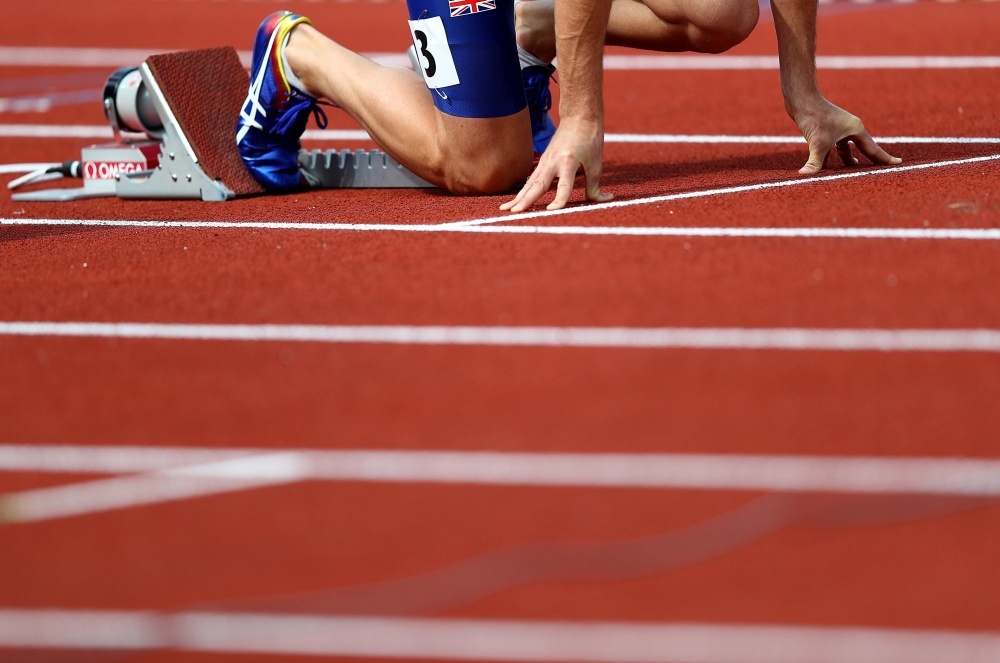The essence of the Olympics is to listen to the shots
The reaction speed determines the difference between the pedestal and the comforting words.

On Sunday, Michael Phelps nearly led to the disqualification of the men's 400m swim team. His reaction after his partner Caleb Dressel [Caeleb Dressel] touched the wall, was faster than lightning - and almost became too fast . Phelps dived exactly 0.08 seconds. after touching Dressel. After that, he showed an outstanding result, but such a quick start played a role.
After the competition, commentators, as usual after the Phelps swims, talked about his form and natural grace. He really possesses these qualities, as well as very long hands, but he also has an unrealistically quick reaction - and this quality is almost impossible to overestimate, both in swimming and in the Olympics in general.
')
How do we know about this importance? We studied pistols, and what happens when we shoot them on the track. There is evidence in favor of the fact that athletes who are closer to the pistol, have the advantage, because they hear the sound before. In a paper related to the Athens Olympics in 2004, published in the June 2008 issue of Medicine & Science in the “sports and exercises” section, the researchers analyzed what was happening on the treadmills and found that those sprinters closer to the pistol showed the best reaction time. The runners on the path closest to the gun reacted 160 milliseconds after the sound of the shot. Runners on all others showed an average response time of 175 ms.
Exactly: there is a 15 ms difference between the fastest and the slowest response - and this is enough to seriously change the course of the competition. Runners are constantly winning the sprint with such a gap. Phelps and his comrades won the race with a margin of 610 ms, and this result was recognized as significant.
The authors wanted to make sure that there were no strange acoustic effects in Athens and that the sprinters represented an average reaction rate for an ordinary person (the reaction time of an ordinary mortal to a shot should be the same as that of an athlete, since it does not require athletic qualities). They also wanted to know if the volume of the shot played a role in the reaction speed. Therefore, they took four trained sprinters and compared them with 12 ordinary people who performed sprint starts with a shot recording, and then checked the reaction speed, increasing the shot volume from 80 to 120 dB.
And that's what they found: the louder the shot, the faster the reaction. In other words, the person with the best response — and the best chance of getting on the pedestal — is not only the one closest to the gun, but also the one who hears the loudest sound.
But this is not surprising. You will most likely hear the shot faster if you are closer to the source of the shot, and not further. Yes, of course, this sound can reach the ears of a long-distance runner almost at the same time as the near runner, but any Olympian will tell you that an instant is a tangible period of time.
Brain training over the past year managed to call a complete nonsense . But at the same time, coaches are increasingly turning into training sessions for those athletes who play sports with a stopwatch, training to accelerate reactions.
In 2010, Canadian researchers conducted an experimental program of " biological reaction speed training, " just before the Games in Vancouver. The researchers focused on Canadian skaters and trained them for five weeks to get ready and react quickly to a shot. In speed skating, a quick reaction will allow you to move quickly around the inner track and improve your running time. Scientists used cognitive training in conjunction with special blocks that measured the pressure of the feet from the rest position to the start of the race. By the end of the 5th week, the response time dropped from 292.65 ms to 211.35 ms: improved by 81 ms.
And so that you do not think that only ninja and Olympic athletes need to work on the reaction rate, you can find jobs that indicate that quick and quick reactions for ordinary clumsy people can help in various areas, from improving the condition of Parkinson’s disease to preventing road traffic accidents . We warn you that an improved reaction may lead to a feeling of victory.
Source: https://habr.com/ru/post/396931/
All Articles